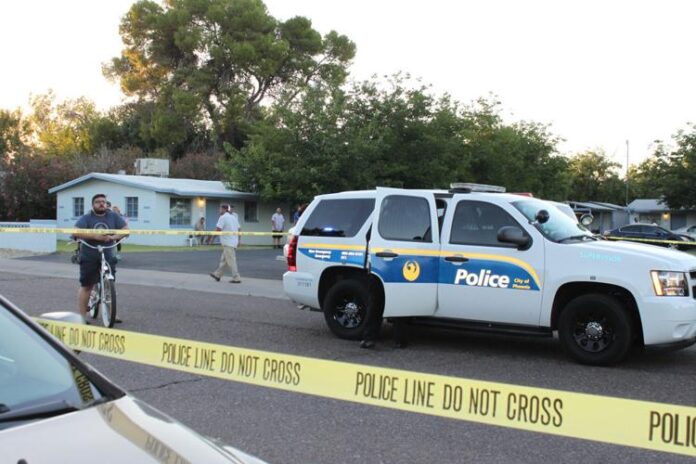By Cameron Arcand | The Center Square
As chatter of a possible consent decree on the Phoenix Police Department from the United States Department of Justice intensifies, local law enforcement leaders want the city to outright reject the possibility.
The Phoenix Law Enforcement Association, the American Federation of State, County and Municipal Employees, United Phoenix Firefighters, and ASTPEA wrote a letter to Phoenix Mayor Kate Gallego asking her and the city council to force the DOJ to end their investigation into the department’s overall conduct.
“DOJ consent decrees do not work as intended, and there is a better way forward. Together, you and the Council can make it known that the DOJ’s time in Phoenix has come to an end,” the groups wrote. “We must send the message that there will not be a consent decree in Phoenix, and revoke DOJ’s expensive and unlimited access to Phoenix PD’s records unless it wants to partner up for legitimate, cooperative technical assistance.”
In the letter, the organizations say that the department is doing enough in regard to reform, and it does not need the federal government to get involved in that process. They also cited Maricopa County Sheriff Paul Penzone’s resignation speech in which he mentioned how the consent decree over the county has made it difficult to do his job, which he is leaving in January. The consent decree related to conduct under his predecessor, Joe Arpaio, who served in the position for 24 years.
“PLEA’s position is not that police reform isn’t necessary in Phoenix; it is that the Phoenix Police Department is already doing just that and doing it well,” the letter states, which also thanked the mayor for her efforts.
Maricopa County Attorney Rachel Mitchell criticized the possibility of a consent decree in October.
“I know that we’re looking at another DOJ investigation into the city of Phoenix, and I’m not sure people understand how controlling that is and how much money that involves,” Mitchell told reporters, The Center Square reported.
The Center Square reached out to Gallego’s office for comment, but they did not respond in time for publication.
“The investigation has come with challenges, as it took several months to negotiate a method for sharing sensitive law enforcement information which complied with FBI standards. The City of Phoenix follows FBI rules for Criminal Justice Information Services (CJIS), which regulate the sharing of sensitive information like fingerprints, documents, and other evidence belonging to those involved in the criminal justice process,” the department said in a news release in August. “The DOJ initially declined several offered solutions, however both parties came to an agreement in late 2021.”
Arizona House Republicans, led by Rep. David Marshall, R-Snowflake, also called on Gallego to turn away a chance of a consent decree.
“Arizonans have already suffered the drastic consequences of the DOJ consent decree over the Maricopa County Sheriff’s Department for the past decade, as Maricopa County Sheriff Penzone and Maricopa County Attorney Mitchell have warned,” the letter states. “Giving any consideration to a DOJ consent decree could very well lead to a massive exodus of police officers—at a time when the police force in Phoenix is already severely understaffed (approximately 500 officers short, according to recent reports).”
Republished with the permission of The Center Square.














